Today as my guest, help me welcome Sarah Johnson, Review Editor (for 11 years) of Historical Novels Review. In her guest post, Sarah gives you the scoop on what she looks for when selecting books to review, and what she deems essential for a compelling historical read.
Historical fiction has perhaps the widest scope among all of the fiction genres. Although there are restrictions on timeframe – they have to be set in the past – there aren’t any limitations on geography, plot pattern, or writing style. Novels as varied as Ellis Peters’ medieval mysteries, Georgette Heyer’s Regency romances, and Bernard Cornwell’s action-packed stories fall under the same umbrella as Edward Rutherfurd’s mammoth multi-generational epic New York and Hilary Mantel’s literary masterpiece Wolf Hall. The Historical Novel Society (HNR’s publisher, www.historicalnovelsociety.org) focuses on historical fiction in a broad sense, considering not only these types of works but also novels that mix historical fiction with the supernatural (a very current trend), alternate histories, and time-slip novels. Historical romances are covered very selectively in HNR, as are Westerns, if there’s enough historical detail to justify their inclusion.
It makes for an exciting and diverse genre, as well as an especially long magazine. The page count of each issue has been steadily growing, which reflects historical fiction’s popularity with both readers and publishers.
As for what gets selected for review…in some sense this is straightforward, because Historical Novel Society aims to be comprehensive in terms of historical fiction from mainstream publishers and small presses. (Self-published books and e-books are covered in its online counterpart.) In practice, though, determining whether a novel fits as historical fiction can be a judgment call. The official cut-off date is 50 years, meaning that novels would have to be set before 1960. However, I’ve requested review copies of some novels (like Karl Marlantes’ Matterhorn, an epic of Vietnam) that were set later than that because they focused on a well-known historical event.
Because most publishers don’t have historical fiction lines like they do for fields like romance, mystery, etc., the other reviews editors and I request many review copies ourselves, based on catalog descriptions. (One of my favorite aspects of the job is browsing each season’s catalogs.) Increasingly, as the genre has become more visible, publishers have been tailoring review book mailings to fit Historical Novel Review’s interests, and sometimes they catch titles I’d otherwise miss.
On occasion, a reviewer will comment that a novel “really isn’t historical fiction” because its sense of place and time isn’t strong enough to ground it in its setting. This is something that fans of the genre look for; they want to be persuaded, by way of the author’s use of historical details and world-building abilities, that the historical world may really have existed. If a novel is being marketed as historical fiction, we’ll go ahead and review these books anyway, figuring that if the period atmosphere is thin, readers will want to know it.
Although tastes in terms of historical setting, character (fictional vs. real), subgenre, and writing style can vary widely, I think what I want out of a historical novel isn’t very different from what others look for. That is: a good balance among the history and fiction, a compelling storyline, characters who reflect the time period, and a convincing historical atmosphere. Minor blunders in accuracy tend not to annoy me, but obvious mistakes will draw me out of a story and cause me to treat the rest of a novel with skepticism.
I read all over the map, but given the choice, I’ll go with a less common location or timeframe rather than one that’s overdone or overhyped. The rest depends on my mood. I enjoy reading literary historical novels because I appreciate an author’s creative and eloquent use of language, but sometimes I’d rather kick back and read a book purely for entertainment’s sake. I read other types of novels now and again (fantasy fiction and contemporary mysteries are other favorites) but because historical fiction is such an extensive genre, no matter what frame of mind I’m in, I can usually find something within the field to satisfy.
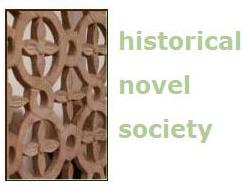
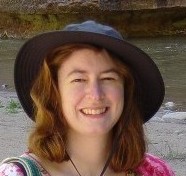

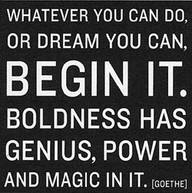
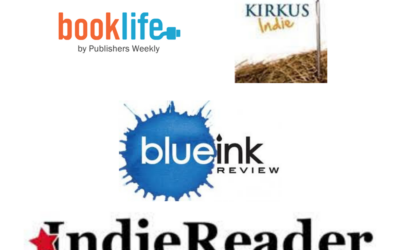

Generally I want to be immersed in the world that the author has created, and in historical fiction, that means it needs to be historically accurate without major blunders. But I don’t necessarily want a rehash of what is popularly known, rather I want to see how the characters are influenced by the setting.
When major historical and cultural blunders happen, the story, no matter how good, falls apart (see http://community.livejournal.com/bookfails/200571.html).
I look for historical facts. I love history and I want to learn something new while reading a good story as well.
I want to gain new insights into events and people of the past. While I don’t expect (or want) the characters to speak in “Olde English” (I can read classic literature for that!), I do expect a minimum of errors. I once read a book that had so many glaringly obvious inaccuracies that I couldn’t finish it. Thanks for the great giveaway!
I love history!
I want my historical fiction to be accurate! If it’s not, I lose interest pretty quickly.
I want to experience a time period by living vicariously through the character(s)…well versed in the authenticity of the setting, an author can put me there…it’s a fun way to learn history…Judy said it well…nice giveaway!
Thanks, Sarah, for an enlightening post. I read historical novels because I love learning and reading about periods before my time. What life was like, day to day, for people who had not the same conveniences and social structure as I do. I also like to get a glimpse of the impact of such and imagine how that affects my world today. I like to read of those who DID impact my world today–fictionalized. Brings that person to life. A balance of the history and the fiction is important to me. I want the history as accurate as possible. (Looking forward to your review of A War Of Her Own next month!
And I met John Pipkin at the East Texas Book Festival! I’m excited to throw my hat in his ring!
Very nice blog, today, Stephanie!
Syl
I want the story to be interesting as well as historically accurate and about a topic I enjoy. Since I am a nature lover, Woodsburner would be a book I’d probably like.
What do you look for in historical fiction? I want the story to be interesting as well as truthful. I want the facts to be based on what really happened in history. Please enter me in contest. Tore923@aol.com
I look for characters I’m interested in and care about and the same dramatic arc that I would want from a fictional story. The historic color and details, context, meanings are icing on the cake — and make the history come alive nothing else can (if the story is good.) Good historical fiction makes history fun and makes the history feel “important” (in a good way) and exciting. It makes history essential. A great example is “War and Peace.”
Other great examples: “True Grit”: “Lonesome Dove”
“The Caine Mutiny”
i like the story to be interesting, well written w/ characters that are realistic.
im a still learning what historical fiction is, to be honest, but i can already see how important it is to our culture and why it is more popular than ever now.
One year I decided to research all I could about the Vikings, because I pretty much didn’t know anything beyond that they came from Scandanavia. After learning all the hard facts I could, I turned to historical fiction novels abut Viking life so as to explore the nuances. Reading the actual history first and then seeing those facts displayed throughout the fiction was very satisfying. So, what I look for in historical fiction is a way to deepen my understanding about a subject in ways that “just the facts, ma’am” will not give me.
Stephanie,
It was great to meet you at the East Texas Book Fest. Both of your sessions were very informative.
Wish it had been a whole day session with you.
Thank you.
Jan Scurlock
http://www.decoratingwithgod.com
author of Decorating with God
I’m especially taken with a historical novel if I feel that I’m there all the time no matter what’s happening. This would mean that the voice, descriptions, smells, sounds, setting, and every word surrounds me because I’m there. When I set the book aside to rest my eyes I want to say, “What the heck…where am I?
A great story cloaked in an interesting historical time period makes for great reading and great learning! (And I really want to read Woodsburner for these very reasons!)
Thanks, Stephanie.
In historical fiction, I look for a good portrayal of the actual setting.
I look for historical accuracy, but I also want to be entertained. I have learned much over the years reading historical fiction. A good book will inspire me to read more about the events/place/time.
I look for accurate historical details and for entertainment. I have to be drawn into the story and the book can’t be written like a history lesson.
I love gaining others aspects, opinions, & ideas of how things could have come about with the fact of history interwoven!
Thanks for the opportunity to participate.
When I am reading historical fiction, facts are important. I want to know that the person has researched what they are writing and that it is accurate. It is okay if they take some liberties, but facts are sometimes more important than the story.
But on the other hand, if the story does not draw me in and the characters are not engaging, I won’t read it either!
Historical fiction is the best!
(Oh, no! I forgot to come by last night! I was working on some things, remembered at one point that I needed to swing by, but had to finish what I was doing first, and then wound up so exhausted that I just forgot later on!)
As for historical fiction, I just want to lose myself in the time and the culture. One of my favorite periods is the time of slavery. I love to truly see what it was like for the slaves, to feel their pain and revel in their success when they break free– to ride the roller coaster of their lives.
I enjoy historical fiction of all kinds, inc. mysteries and romances; in varied settings from dark ages in Britain, American Civil War, French Revolution, etc. In most cases if I like the characters and the setting is accurate, I’ll enjoy the novel. I esp. appreciate added author’s notes re. the characters and explanations of situations which the author might have changed in some way. I follow Sarah Johnson’s blog, and I’ve found that anytime she strongly recommends a novel, it will be one I will enjoy as well.
I’m new to reading historical fiction. I really wasn’t aware of the variety of the genre and how many wonderful historical fiction novels there are until I discovered the book blogging community. I’ve really enjoyed the characters in the few historical fiction books I’ve read but what I liked best of all is the setting and events which are usually taken from real life and teach me something about history that I didn’t know or had forgotten. For instance, before reading “On Folly Beach” by Karen White, I was unaware that the Germans came so close to the USA mainland and were right off of the North Carolina Coast. I was also unaware of the German spy ring that infiltrated the US in that area. “On Folly Beach” educated me about a few things that happened in the USA just before we got involved in the war that I wouldn’t have known otherwise!
While I want the historical fiction I read to be historically accurate, I also want it to be an engaging and interesting read. In other words, I do not want it to read like non-fiction. Non-fiction has it’s place, of course, and I do enjoy reading non-fiction in the historical genre from time to time, but historical fiction for me should entertain while providing an accurate historical setting and (some) characters.
I look for a compelling story that I might not know much about.